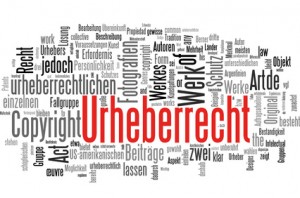If there is one thing the German political parties of the 2013 federal elections agree on, it’s that German copyright law needs to be reformed. Current rules are sometimes difficult to apply to new internet-based behaviour. However, no party seems capable of presenting a clear concept.
Reform of German copyright law
Current German copyright law is not adept at regulating the modern, digitalised world. All political parties in Germany agree on this. The tension between protecting copyright holders’ work and guaranteeing developing internet usage trends needs to be released.
While no party has concrete ideas about how to solve the problem, it is agreed that any solution must erode protection for intellectual property. Almost all party manifestos clearly state that copyright holders must be properly compensated for their work.
Germany’s Social Democrats (SPD) see the protection of intellectual property and the interests of copyright holders as “essential”. Their manifesto states: “current user behaviour cannot be allowed to lead to this protection being taken less seriously.”
The Christian Democrats (CDU) take a simpler approach, calling for the question of copyright protection to be uniformly regulated at EU level.
The SPD offers nothing more concrete. The party simple states that it wants to create clear rules and would like to broaden the fight against illegal internet platforms such as kino.to.
Nevertheless, two particular concerns are beginning to crystallise before the backdrop of the German national elections:
1. Access to academic works
All party programmes we have looked at advocate easier access to academic works. Scientific research should be available for all to view.
The CDU believes that this principle should apply in particular to research which receives state funding. While the SPD suggests that researchers should publish their results directly on the university websites. The Pirate Party even goes so far as to require that all scientific papers from public authorities should be excluded from copyright protection.
2. Ancillary copyright protection
We have already reported on the controversial ancillary copyright act (Leistungsschutzgesetz) which came into effect in August 2013.
The legislation is designed to protection press publishers’ intellectual property rights by preventing content aggregators from displaying snippets of text on the internet without permission and without having paid the relevant fee.
The left party, Die Linke, is categorically against this new legislation and the SPD wants to repeal the act as soon as possible.
Conclusion
German lawyer and partner at WILDE BEUGER SOLMECKE, Christian Solmecke, summarises the position as follows:
“There are clear discrepancies in many parts of Germany’s current copyright law.
“There is a pressing need for new rules which allow users to publish their creative works on the internet legally. It should not be the case that someone who creates a remix or a collage of pictures should have to worry about having acted illegally.
“There is also an imbalance between the rights of professors and the rights of publishers when it comes to scientific papers. It seems unjustified that professors who are funded by the state to produce scientific work are not legally permitted to publish their results on university websites. In the interests of promoting education, this should be allowed.
Related articles:


